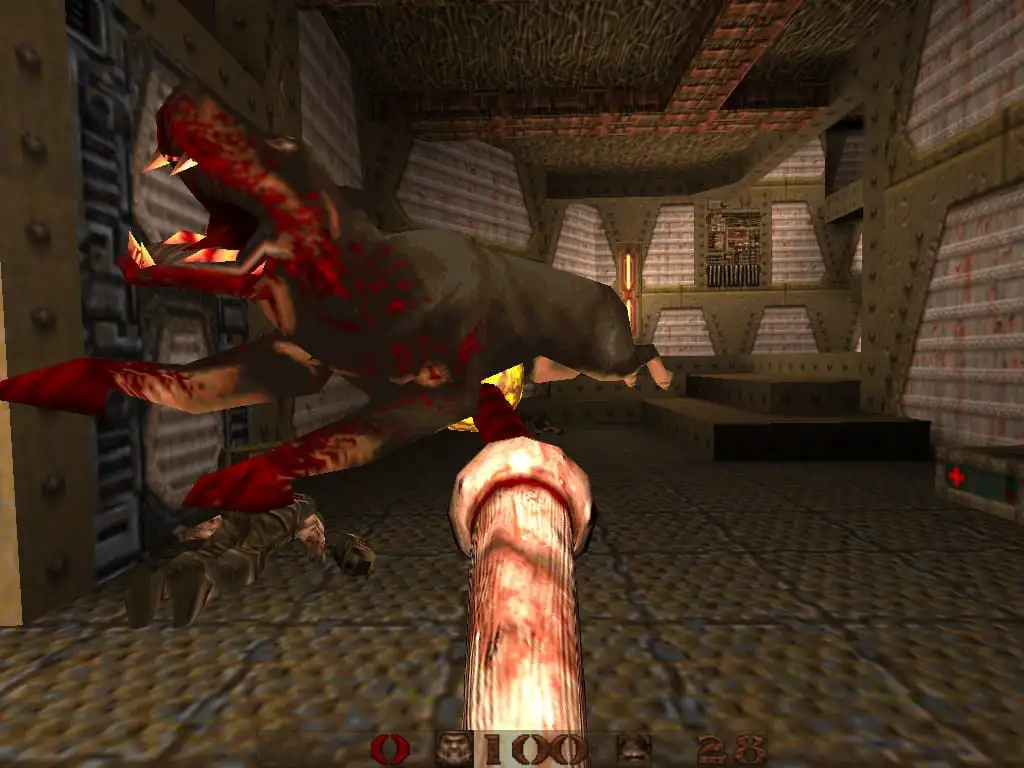Despite the eventual reversal and admission that “it’s clear we didn’t understand exactly what we were doing,” Valve still seem pretty eager to implement a method of financial compensation for popular mods. The same celebrated announcement which saw Bethesda and Valve backing slowly away from their ruinous Skyrim modding experiment also contained the line “… we believe there’s a useful feature somewhere here.”
It is almost certain that Valve will return with a new system. They’re philosophically inclined to generate revenue from user-created stuff (as their own titles Team Fortress 2, Counter-Strike and DOTA 2 make clear,) and are unlikely to let an opportunity to take their cut simply slip away.

To turn this ‘Art of the Catch’ image into a rubbish political cartoon, simply label the fisherman as ‘Valve’ and water as ‘massive untapped revenue stream’.
Since it’s probably going to happen anyway, it seems prudent to pay attention to other mooted schemes that would compensate mod creators for their efforts. Some have championed donations, which have previously been successful in isolated cases such as former Maxis employee Bryan Shannon’s Patreon for Cities: Skylines mods.
id Software had their own ideas for providing financial rewards to Quake modders back in 1995, at least according to an article that’s doing the rounds this week. While such claims often have a ring of “no, look, I invented the internet in 1954, come on guys, believe me” to them, id Software really were pragmatic and forward-looking when it came to matters like Shareware and modding.
The way John Romero tells it, the id Software model was actually pretty solid.
Curation.
For a start, id was actually going to curate their site. The proposed ‘id Net’ portal was going to have “levels and mods chosen by us at id.” Under such a system, id themselves would be the company taking responsibility for weeding out copyright-infringing entries. The onus of selecting interesting, fun, and useful Quake mods would be in the hands of the people who made Quake.
Contrast this with Valve’s approach to Skyrim last month (granted, a situation where Valve are not the game’s developer,) which involved contacting a few mod creators in secret one month in advance and then saying “hey, you can put prices on Skyrim mods in the Steam Workshop now!” with basically no oversight.
Strangely, this ‘throw a hunk of bread into the starving crowd and see what happens’ approach to economics resulted in one or two issues of ownership, copyright, and quality control popping up. Things you can at least mitigate (if not outright eliminate) with some form of curation. But then, that would involve Valve or Bethesda actually taking their responsibilities beyond the point of just passively collecting a sales cut.

Don’t worry, mod creator Rich Whitehouse says this is “not a penis.”
Players weren’t the ones being billed.
Speaking of sales, the other thing id’s hypothetical set-up had going for it was that the poor old player wasn’t having to fork out more money. In Romero’s concept, “if we put your content on our network we would pay you an amount equal to the traffic that your content drove to the site.”
That’s not exactly an in-depth financial plan, but it sounds like modders would either have received a share of advert revenue, or money from id’s own pocket (presumably replenished by however they were generating money from site traffic – again, probably adverts.)
With some games threatening to nudge the $100 USD mark once ‘Season Pass’ nonsense is taken into account (hello there, Arkham Knight,) it seemed a bit presumptuous to add mod costs to a game’s life-time receipt. Especially in cases like Skyrim’s ‘SkyUI’ (which replaced the title’s dodgy console interface with a more PC-friendly affair,) where players would effectively be paying for something that should’ve been in the game from the start.
“An amount equal to the traffic” (my emphasis) also makes it sound as if id intended to give mod creators a fair cut of whatever money was coming in. That’s speculation on my part, but it does sound a whole lot better than the derisory 25% cut the Valve/Bethesda deal was providing – a major point of contention during the whole affair.

The ever-popular SkyUI mod. Making Skyrim’s interface bearable on PC since always.
id Net was set inside a weird virtual castle or something.
Best of all, the hypothetical id plan had an incredibly 90s design. “Players would log in and be in a big level that felt like a castle” Romero says, “with lots of doorway portals and signage that explained where you were going and what was there.”
Rather than a boring store front, you’d be walking through a tremendous Quake castle. Take note, Steam Workshop. Or … maybe not.

This is what you get when you search for “Quake Castle” on Google.
id ended up dropping their idea due, in Romero’s recollection, to a lack of resources. Everybody was needed to get Quake finished, which didn’t leave anyone to sort out the logistics of a possible id Net. The Quake modding scene, of course, would flourish without it.
Aside from the dated (and/or amazing) ideas about organising the system around a virtual castle instead of a straightforward search engine, id’s system seems to have a lot of merits. It directly addresses the two gigantic problems with Valve’s Skyrim experiment; the total lack of regulatory oversight, and the derisory percentages modders were going to receive.
It’s hardly the One True Answer to how high-quality mods could be rewarded with financial remuneration. But certain aspects are worth keeping in mind when this issue inevitably re-appears in the not-so-distant future.








Published: May 5, 2015 08:00 am